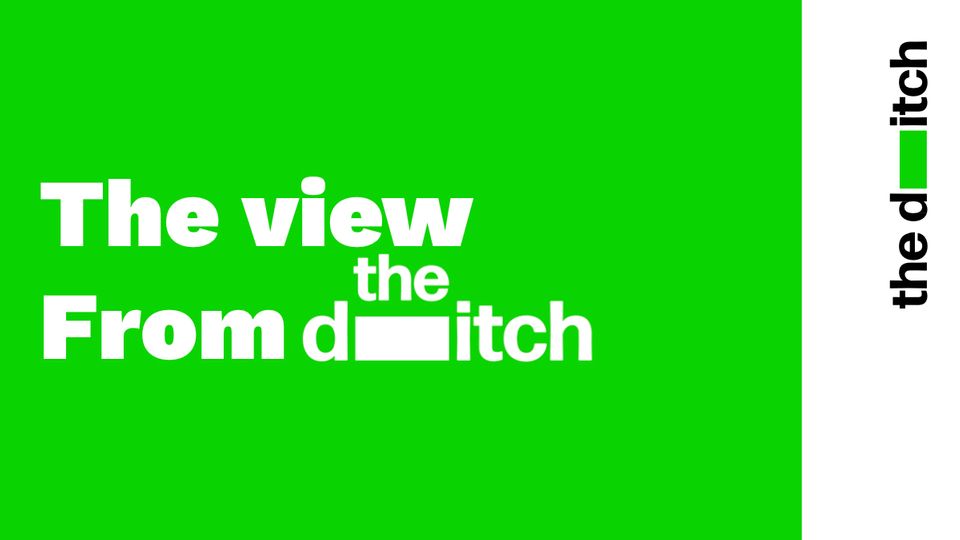Katherine Zappone sells ‘Shanty’ home in advance of new role
Ahead of her new and specially created two-year UN role, Katherine Zappone in early June put her Dublin home up for sale. The Shanty, as she calls it, is a 2,400-square-foot, Dermot Bannon-designed home with a price tag of €750,000. Not a bad return on her investment in the Brittas property, considering she purchased it in 1985 for £62,000 (about €165,000 in today’s money).
It emerged this week that Zappone suggested to foreign affairs minister Simon Coveney the creation of her new job – UN special envoy for freedom of expression. She's an interesting choice for the role, given her track record with the principle.
Zappone was present, along with Joan Burton, at the 2014 anti-water charges protest in Jobstown's An Cosán, an adult education centre she founded. Watching the protest unfold, there were moments when she felt “the crowd was going to get out of control”, she told The Journal, adding that she “made many phone calls, both to the guards and actually to RTÉ”.
She said she later learnt that gardaí were already present at the time of her call – perhaps the same gardaí who contributed 180 statements to a later trial of six protestors, which were contradicted by video evidence of the day. Zappone herself at the trial of the Jobstown Six, which included People Before Profit TD Paul Murphy, said: “There were menacing elements of the protest that went beyond what I consider to be a legitimate form of peaceful protest."
The jury, with perhaps a better understanding of the protestors’ right to freedom of expression, disagreed.
Fine Gael TD Emer Higgins on Virgin Media’s Tonight Show said of Zappone’s new position, "This is a 13 or 15 grand role too. I mean, I don't think we want to make a huge mountain out of a molehill here.” A welcome addition to Zappone’s combined senator, TD and ministerial annual pension anyway.
A win for indoor dining and mental health
If you want an idea of in whose interests Ireland is built, consider the term “indoor dining” and how it came to define discussion of Covid-19 restrictions in Ireland over the last year or so. Eating out, which was once, pre-pandemic, something you did every now and again or on the odd special occasion, became a matter of national importance, while the people advocating for a reopening of the hospitality industry became increasingly high-profile public figures.
With indoor dining resuming this week for at least some – mainly the fully vaccinated and those with the means to dine in restaurants regularly – Restaurants Association of Ireland (RAI) CEO Adrian Cummins will have been brought some relief.
Cummins, like many small business owners and their representatives, has learnt about mental health during the last 18 months. He told the Irish Independent in June of this year, "We have a huge amount of disgruntled staff in terms of mental health.” In March he told an Oireachtas joint committee, speaking about RAI members, “Their mental health is suffering because of the pressure these landlords are putting them under” to continue paying rent while their premises remained shut during the pandemic.
Cummins has been RAI CEO for more than 12 years now. Aside from a fluffy Fleishman Hillard-assisted campaign in 2017 that allowed diners to donate €1 to mental health organisations, the RAI has never seemed much concerned with mental health – at least not the mental health of service industry workers on minimum wage.
In 2015, when the Irish minimum wage was €8.65 an hour, the RAI made a submission to the Low Pay Commission, which was convened by government to examine whether the rate should be raised. “The RAI,” the organisation said, “are concerned about the need to create more jobs in the restaurant industry and the economy. An increase in the minimum wage will stifle job creation and have a destabilising effect on the restaurant and hospitality industry.”
Cummins wasn’t as concerned about workers on the minimum wage and the landlords at their doors.
No fanfare as Rose Hynes’s Irish Aviation Authority gig made permanent
In January it was announced that transport minister Eamon Ryan had appointed aviation executive Rose Hynes as interim chairperson of the Irish Aviation Authority without a formal process.
Sinn Féin TD Maurice Quinlivan took issue and in February submitted a parliamentary question on the appointment. In response, Ryan told Quinlivan that he fully intended “to initiate a formal recruitment process under the State Boards Appointment guidelines later in the year”.
According to a 27 July update on the State Boards' website however, Hynes’s appointment has been made permanent.
This is not the first time that Hynes has been caught up in political controversy. Last year former transport minister Shane Ross claimed, in his memoir In Bed With the Blueshirts, that Hynes's twelve-month extension as Shannon Group chairperson in August 2019 arose following pressure from the then Taoiseach Leo Varadkar.
Ross wrote that less than five minutes after a conversation with Hynes regarding her position, he was contacted by Varadkar who requested a phone call to discuss the matter.
With the furore over Katherine Zappone’s recent appointment, you can only assume that Ryan was hoping this would be kept under the radar. Did anyone inform Taoiseach Micheál Martin (who wasn't informed about Zappone)?
What is the Soc Dems’ voice trying to tell us?
Who’d have thought that a party largely conceived to give Stephen Donnelly a shot at a ministerial position and named after a political tendency that has struggled to retain any kind of relevance after the 2008 financial crash would end up like the Soc Dems?
Sixteen members tried to initiate a leadership heave last week before ultimately retreating. They did so in a letter, signed by two councillors, Chris Pender and Cat O’Driscoll.
The letter, in what’s becoming a trademark for the party, used a lot of words to say pretty much nothing.
“We believe that the promise of a member-led party is what has attracted so much talent to the organisation,” it read, adding, “We are now ready to move again, and we are looking to what lays ahead.” The sixteen members, read the letter, “would like the opportunity to take stock of where we are and where we’re going”; they’re “ready for a new phase of development and growth”. The party, “a new wave in Irish politics”, needs “to be strong with a united voice".
Which is well and good, but what exactly is this strong, united voice going to say? If these 16 members are looking at what lies ahead for the party, could they articulate what they see? If they’re taking stock of where they’re going, could they let us know?
Or will the party continue to be a halfway house for people who’ll either be Fine Gael or People Before Profit voters in ten years’ time?


